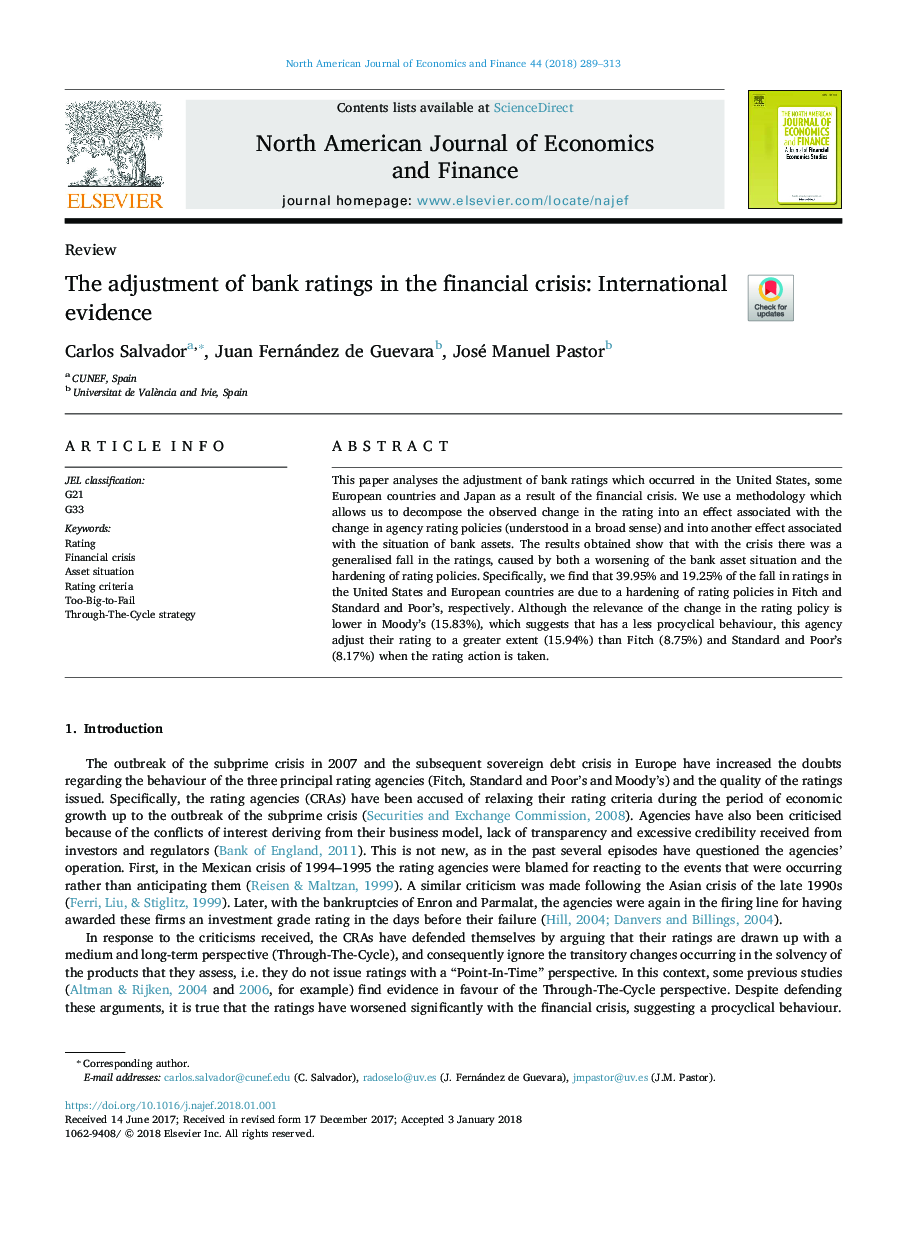| Article ID | Journal | Published Year | Pages | File Type |
|---|---|---|---|---|
| 7373929 | The North American Journal of Economics and Finance | 2018 | 25 Pages |
Abstract
This paper analyses the adjustment of bank ratings which occurred in the United States, some European countries and Japan as a result of the financial crisis. We use a methodology which allows us to decompose the observed change in the rating into an effect associated with the change in agency rating policies (understood in a broad sense) and into another effect associated with the situation of bank assets. The results obtained show that with the crisis there was a generalised fall in the ratings, caused by both a worsening of the bank asset situation and the hardening of rating policies. Specifically, we find that 39.95% and 19.25% of the fall in ratings in the United States and European countries are due to a hardening of rating policies in Fitch and Standard and Poor's, respectively. Although the relevance of the change in the rating policy is lower in Moody's (15.83%), which suggests that has a less procyclical behaviour, this agency adjust their rating to a greater extent (15.94%) than Fitch (8.75%) and Standard and Poor's (8.17%) when the rating action is taken.
Related Topics
Social Sciences and Humanities
Economics, Econometrics and Finance
Economics and Econometrics
Authors
Carlos Salvador, Juan Fernández de Guevara, José Manuel Pastor,
